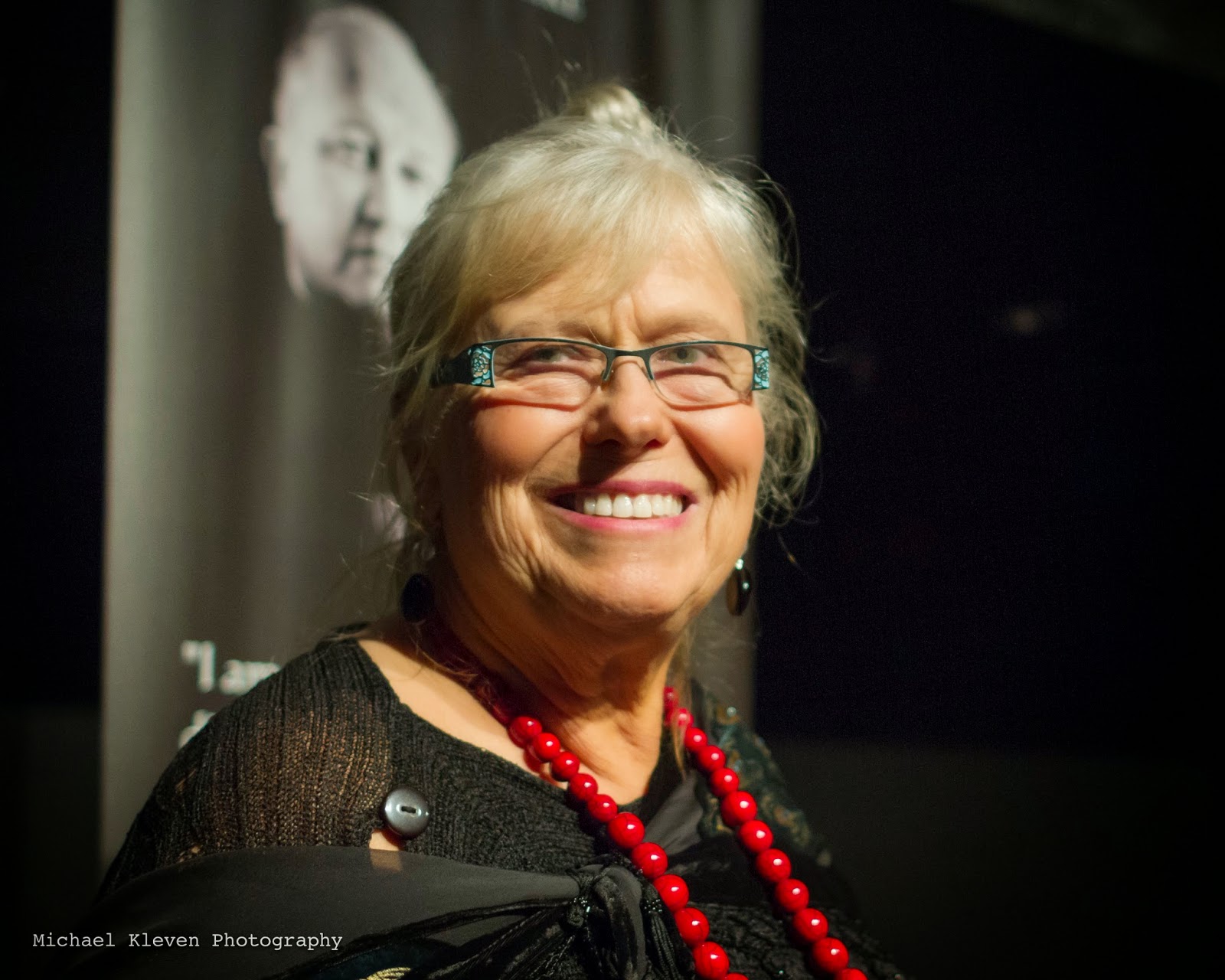 |
| Sandra Kleven |
Bellingham, WA, to take a job, in Bethel, AK.
That was my first mistake. The
second was bringing my entire family on this jaunt. Even in ‘84, it cost about $2000 to transport
five people to the distant bush; once you brought them, it would cost just as
much to go home again. I put this
concept into Holy Land, a writ of witness scrawled eleven years
later. I smile, now, remembering.
here and already you want to go home. Okay, okay. How can we get you home again? Do you have $400? Maybe the jet will take you
back to Anchorage, while there is still time. Oh, no! You don’t have that kind
of money. You spent all your money on
your hat and gloves. You will stay for a
while, Gussaq.
first two years we rarely strayed toward the cities. When you stay put, as we did, Bethel becomes
your center. Bethel seeped into us. The three-year-old spoke English with a
Yup’ik accent.
gave us the cash to leave. We flew to
Washington State, so I could go to graduate school. I needed more training. I
wanted weaponry for the battle.
Why did I want training and weapons (tools, if you prefer)?
were educated idiots (my stepfather’s perfect phrasing). I was angry. I felt
helpless. Again, from Holy Land.
parents were out drinking. See the child
who was sent to his parent’s bed to sleep and who, reaching under his father’s
pillow, found the hand gun and pulled the trigger piercing his lower gut. It took him days to die. This girl, a suicide,
but that is not the whole story. Age five, falls out of a pickup truck in the
village. Brain damaged. Now, not so
smart. She is used in a sexual way by
her cousins and her uncle. She is used when
they are drunk or sober. She is pregnant at 14.
Whose child? Try to guess. No one knew.
No one would own up. Forced
abortion. A few years later, suicide. By shotgun.
So often they use these big guns. It is quite a struggle for them to use
these long rifles and shot guns, reaching with a toe to press the trigger. They do it to rule out rescue.
rest and relaxation provided periodically to soldiers. School was balm to my wounds and I was wounded
by not the trauma all around me, but by twisted bureaucrats and other
authorities with too much power, too little compassion, and no sense at all.
Bethel and took a job in pleasant Valdez. But I still lingered in Bethel and
the Y-K Delta. Finally, I started to write and the words tumbled into “Holy
Land,” a testimony that found shape eleven years after first encounter.
certainly speaking to me (or someone who, like me, wants to solve the problems
of Western Alaska) offers this:
day will come when you and I meet again.
Your hand will reach toward me and I will see in your palm what you have
to offer. I will see what you are holding back.
And I will know if you have learned anything at all.
time of this writing, I live in Anchorage but in total, I have lived in Bethel
for ten years. I have two unpublished manuscripts that draw on my work in the
Yukon-Kuskokwim Delta. Additionally, a children’s book about sexual abuse, Talk About Touch, was published in
2012.
first on stories that came from Alaska Native people. As a therapist, I heard
the accounts in rooms where the promise of secrecy is a constraint. Holy Land (now a volume of its own) does
reference real things, but after eleven years, these were obscured; I made
modifications in order to write about what I had seen, without violation of
trust.
Alaska’s Native people would tell their own stories. I had heard so much of pain, courage, conflict,
and perseverance against all odds. Alaska Native people have much to offer the
rest of the world. Stereotypes are challenged when people tell stories, bringing
a reader into the pressure, panic, and gladness.
carries mysteries, first, because I do not know what is being said, but more
profoundly, because it is shaped from a worldview that, in terms of literature,
one might call magical realism. It carries deep knowing, a counterpoint to the
historical schism created as the gig-saw of Western civilization cut willfully
into the way of the People – without knowing what was, or is, at stake.
my ear, English, as spoken by Yup’ik people, is engaging and poetic. “I am at my
last string’s end.” I quickly scribbled the line, as a mother complained about
her young son.
next week: “Writing the Cultural Ridge”
Editor
of Cirque, a literary journal, Sandra Kleven is a poet, filmmaker, and
essayist. She also facilitates Poetry Parley, a monthly poetry event
(Hugi-Lewis Studio). Her own work has appeared in AQR, Oklahoma
Review, Topic, Praxilla Stoneboat, f-zine
and the UAP anthology, Cold Flashes.
Two poems have been nominated for the Pushcart Prize. Her work has also won
notice in the UAA Creative Writing and F’Air Words contests. Kleven is the
author of four books, her most recent being Defiance Street: Poems and
Other Writing (VP&D Publishing
House). She holds an MSW degree as well as an MFA in Creative Writing and works
for Alaska Native tribal organizations as a clinical social worker. Kleven claims affinity for Alaska, where she
lives with her husband, and Washington State, where she was born.

Photo credit: Michael Kleven of Kleven Creative Services and HeartStone Productions
Honest writing is precious, Sandra. Keep at it! 🙂